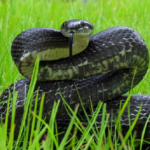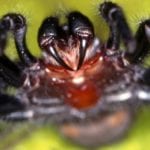 Mysteries
Mysteries  Mysteries
Mysteries  History
History 10 Surprising Stories About the Texas Rangers
 Humans
Humans 10 Philosophers Who Were Driven Mad by Their Own Theories
 Miscellaneous
Miscellaneous 10 Video-Game-Worthy Weapons and Armors from History
 Weird Stuff
Weird Stuff 10 Psychics Who Accurately Predicted Wartime Events
 The Arts
The Arts 10 Pieces of Art Inspired by a Broken Heart
 Health
Health 10 Science Fiction-Sounding New Medical Treatments
 History
History 10 Surprising Facts About the Father of Submarine Warfare
 Space
Space Ten Astonishing New Insights into Alien Worlds
 Weird Stuff
Weird Stuff 10 Bizarre Summer Solstice Rituals Still Practiced Today
 Mysteries
Mysteries Top 10 Haunting Facts About the Ghost Ship MV Alta
 History
History 10 Surprising Stories About the Texas Rangers
 Humans
Humans 10 Philosophers Who Were Driven Mad by Their Own Theories
Who's Behind Listverse?

Jamie Frater
Head Editor
Jamie founded Listverse due to an insatiable desire to share fascinating, obscure, and bizarre facts. He has been a guest speaker on numerous national radio and television stations and is a five time published author.
More About Us Miscellaneous
Miscellaneous 10 Video-Game-Worthy Weapons and Armors from History
 Weird Stuff
Weird Stuff 10 Psychics Who Accurately Predicted Wartime Events
 The Arts
The Arts 10 Pieces of Art Inspired by a Broken Heart
 Health
Health 10 Science Fiction-Sounding New Medical Treatments
 History
History 10 Surprising Facts About the Father of Submarine Warfare
 Space
Space Ten Astonishing New Insights into Alien Worlds
 Weird Stuff
Weird Stuff 10 Bizarre Summer Solstice Rituals Still Practiced Today
Top 10 Misunderstood Animals You Are Terrified Of
For as long as humanity has been around, the fear of certain animals has been pervasive and entrenched in our various cultures, all the way from ancient mythological depictions of animals as exaggerated monsters, to our modern society’s urban legends and misconceptions, certain animals have earned a horrible reputation and millions of people fearing them, often without much to back that up.
10 Camel Spiders
Starting off strong with a creature that’s certainly terrifying looking, a horrible alien from a sci-fi movie perhaps, solifuges or camel spiders, neither camels nor spiders, have more than a few urban legends going around about them, claims that they’re incredibly fast, lethally venomous, and grow up to a metre long, killing pets and humans alike, there have been a ton of stories and a few viral images going around that certainly painted a clear and consistent picture.
That picture, however, was nothing more than an illusion. While certainly fearful in appearance and not exactly slow or small, the largest camel spiders grow to be 12-15 cm-s or 5-6 inches long, certainly not a metre, alongside the facts that no camel spider species possesses venom nor a way to inject it, these horrid-looking relatives of spiders prefer to simply run away, and while a bite may be unpleasant, these arachnids are certainly not lethal.
9 Snakes
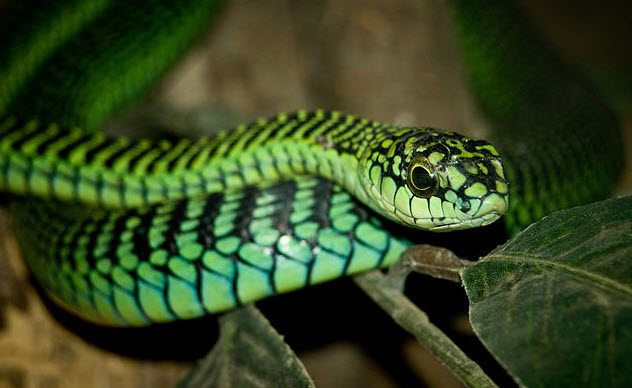
While the fear in this case isn’t entirely unfounded, snakes are certainly misunderstood, and incredibly so. Often the most dangerous venomous animals, or perhaps most dangerous animals in general in any given area, certain species of them are absolutely something to fear, but, as usual, exaggeration frequently occurs.
While it is true that no one should approach a wild snake, especially not if they don’t clearly recognise the species as a harmless one, most snake species aren’t aggressive and really want nothing to do with humans, let alone waste their precious venom or risk themselves taking down a person, something that’s really not an efficient food source for them, the fact remains that, while they certainly demand a careful approach, less than a tenth of snake species are estimated to be actually dangerous to humans, they often inflict a dry bite even when attacking since most typically would rather warn than envenom, and with the increase in readily available antivenins, deaths from snakebites should drop in the future significantly.
8 Scorpions
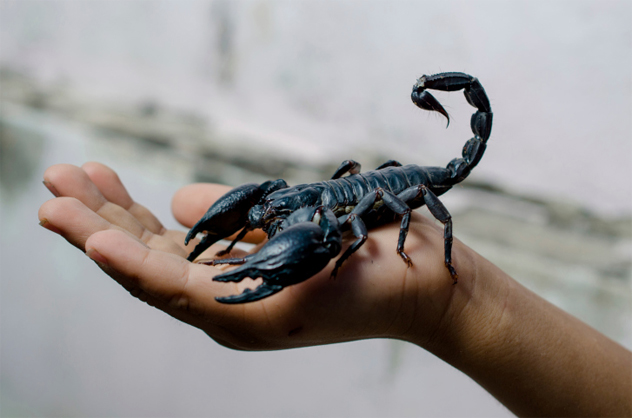
Another animal that probably gets a severe reaction from many, the strange, alien-like body, large pincer-like pedipalps, and a tail that can inflict a venomous sting, many people in warmer areas of the world fear the idea of encountering a scorpion at all and while, yes, some may be dangerous, the truth is that most really aren’t.
These arachnids also want nothing to do with us generally, and while about 20-25 species of them are considered medically significant and thus dangerous, that’s out of 1,500 species of scorpions recognised worldwide. Many of them do have a painful sting, but, unless you’re extremely unlucky or live in an area with the particularly dangerous species around it shouldn’t really be worse than a bee sting. Certainly avoid getting stung, but unless you meet a deathstalker scorpion, fear of one taking your life is likely unnecessary.
7 Piranhas
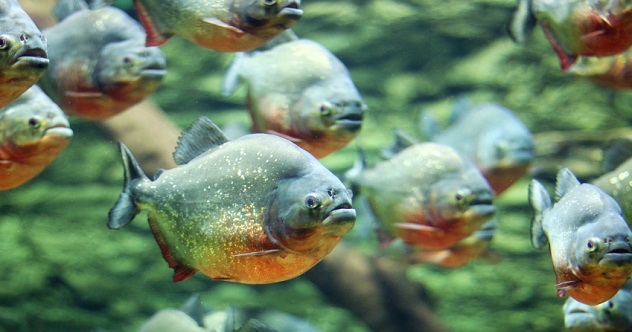
Fish that swarm large animals or even humans and tear them apart in mere moments, how could that not be terrifying? Well, the answer is yet again quite simple—popculture isn’t exactly accurate about animals and loves portraying them in the flashiest of ways, often ignoring what they’re really like.
While certainly formidable predators with sharp teeth and a powerful bite, they pose little to no threat to humans, in fact, they tend to show complete disinterest in us. Some researchers even proved this, by entering piranha-infested waters in simple swimwear, the fish completely ignored them, as opposed to the bloody piece of meat they lowered in later on, which they happily ate. While some piranha attacks do occur, many people swim around them with no problems and the truth is, they’re actually quite low on the food chain and tend to move in groups for defence rather than offence.
6 Cockroaches
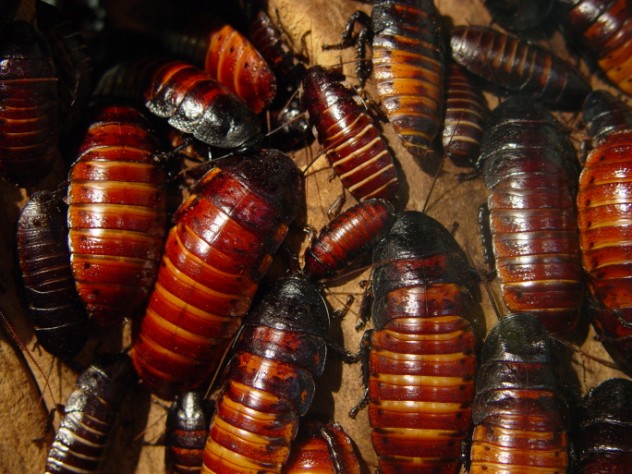
This one is a bit tricky. Some cockroaches, the ones we know as pests, are certainly worthy of any indignant terror and hatred they spawn, living, vivid nightmares of many new apartment owners and sometimes an incredibly disgusting surprise in specific restaurants, these species are rightfully regarded as horrible, but, what many people don’t know is that these hardly represent cockroaches well.
While most people turn their nose up at any mention of a cockroach, the reality is that, of the nearly 5,000, incredibly varied and often interesting species of cockroaches, only a few dozen are associated with our homes. Alongside this fact, one may also realise that the survivability of cockroaches is, generally, greatly exaggerated. While certainly resilient, they’d have no chance of surviving a nuclear blast, and most don’t live for decades either, contrary to another somewhat popular cockroach myth.
5 Tarantulas
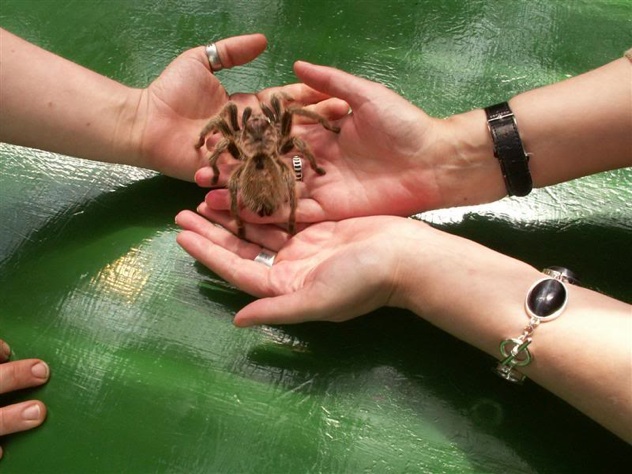
Hairy and massive, some of the largest spiders in the world, or, in the goliath birdeater tarantula’s case, largest in the world by mass and body length and only second in leg span, these arachnids have unsurprisingly garnered a lot of media attention as real-life monsters, what many don’t know, however, is that they’re, generally speaking, not as scary as they may seem.
While Old-World species, species from parts of the world that aren’t the Americas, can be quite quick and aggressive, their venom isn’t considered medically significant and many New-World species, those from the Americas, are downright docile, popular in the pet trade and regarded as gentle giants. While it’s understandable that they won’t suddenly become everyone’s favourite animal, and being bitten by those fangs is certainly something to avoid, there are no human deaths recorded that were caused by tarantula bites and, really, they just want to be left alone.
4 Sharks
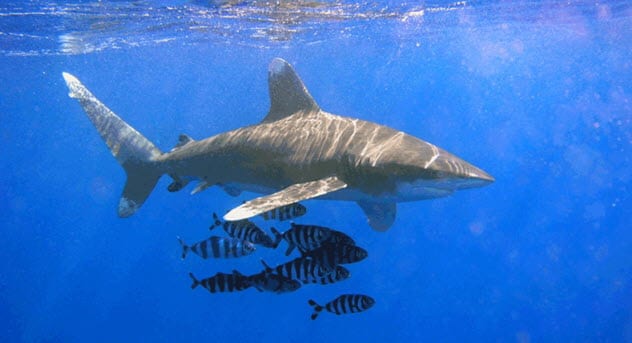
Another filmstar, sharks are animals many people fear, though, realistically, you’d have more reasons to be afraid of dogs than these fascinating, large fish. While films such as Jaws have made a massive cultural impact that even persists today, in real life shark attacks are rare, and out of the hundreds of shark species in the world, only about a dozen or two are attributed to human attacks, and even then, scientists suspect that it’s often because sharks mistake us for their typical prey, a group humans absolutely don’t fit into.
Shark attacks are extremely rare and fatalities only form a fraction of those. In 2018, for instance, there were only five recorded human fatalities from sharks in the whole year, as opposed to the millions of sharks killed by us annually. Your chances of dying from a shark are one in millions, and even the myth that sharks can smell blood in the water from miles away is simply that—a myth.
3 Bats
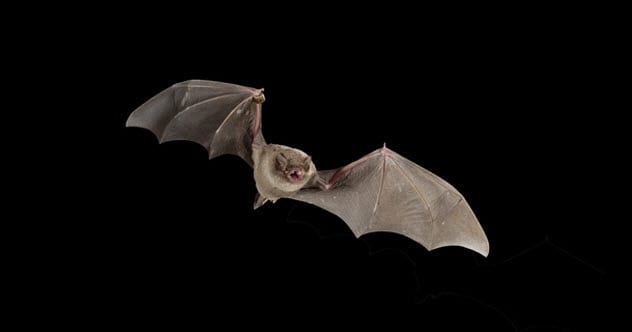
Bats have certainly always been divisive, some find them scary and even gross, others quite cool or adorable, but they’ve undoubtedly had a reputation for decades now, frequent appearances in horror media, and recently gaining massive infamy for being the most attributed root cause of the massive covid-19 pandemic we’re still experiencing as of the writing of this list.
The truth is, while bats can absolutely carry rabies and other viruses and diseases, and vampire bats that simply do harm by sucking blood also exist, this represents a very small percentage of bats in reality. Most species are not thought to be significant disease carriers and vampire bats aren’t typically interested in humans either. Misunderstood in another way as well, contrary to popular belief, these fuzzy, flying mammals are actually not blind either.
2 Poison Dart Frogs
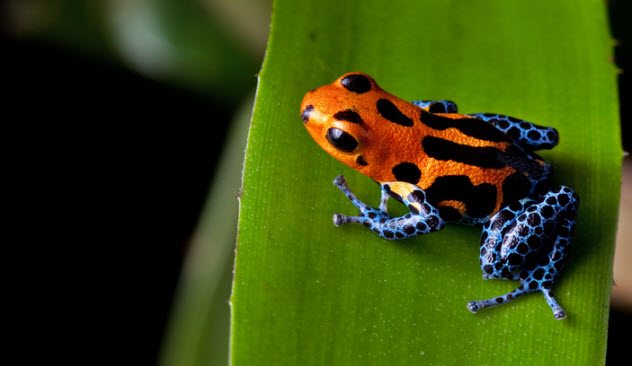
Many people greatly misunderstand poison dart frogs, these frogs have gained notoriety for the amount of poison they possess, enough to kill nearly a dozen adults and overall considered one of the most toxic animals on Earth, they are certainly something to be afraid of, should you eat one.
Otherwise, however, worries seem to be unfounded. The popular belief that even touching or handling these frogs is lethal is entirely untrue, worrying about one of these frogs jumping on a person’s skin and resulting in one’s death or, as some urban legends go, causing extreme hallucinations is entirely unnecessary, rough handling may result in some pain but, unless a significant amount of poison can get into a person’s bloodstream through an open wound or, as mentioned above, the frog is eaten, they’re virtually harmless. Another interesting fact, surprisingly, is that they actually lose their poison entirely in captivity, leading scientists to believe they gain their poison from their diets, though it’s currently unknown from what plant or animal exactly.
1 Spiders
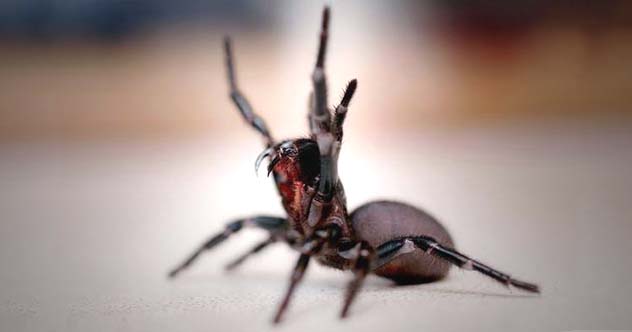
While the list had a separate entry for tarantulas as a special and specific case, there’s really no group of animals more misunderstood than spiders as a whole. A massive and varied order of animals, they’re regarded as the most common phobia in the world, even their tiniest individuals freaking millions or potentially billions of people out from their simple existence alone. Spiders, in reality, are fascinating and do way more good than harm, even though that’s not what their reputation would have you believe.
While their appearance can be eerie, they’re shy animals and most of them really pose no threat at all. Out of the nearly 50,000 spider species recognised worldwide, only about 25-30 of them are recognised as dangerous to humans, and even then, many spiders would prefer to flee rather than fight and even black widow spiders, notorious for their dangerous venom, rarely produce a fatality and mainly do so in very old or very young people, and still many inflict dry bites even in self defence. Spiders just want to be left alone and, aside from an irrational phobia, unless you’re living in an area with some truly dangerous species, you really have no reason to kill them, especially considering the fact that they get rid of an incredible amount of actually harmful insects.
10 Extinct Animals With Surprising Attributes
About The Author: Just a curious person with a fascination for all things science, mysteries, and misconceptions, anything interesting!
